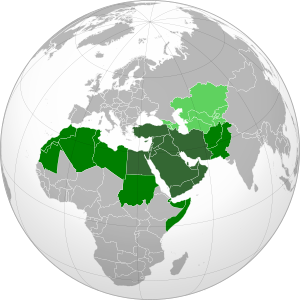Mythology records the constraints on power of mortal kings:
…[King Cnut of Denmark, England and Norway] set his throne by the sea shore and commanded the tide to halt and not wet his feet and robes; but the tide failed to stop. According to Henry [of Huntingdon], Cnut leapt backwards and said “Let all men know how empty and worthless is the power of kings, for there is none worthy of the name, but He whom heaven, earth, and sea obey by eternal laws.” He then hung his gold crown on a crucifix, and never wore it again.Cnut the Great Wikipedia
In the wake of the revolution in Tunisia and the amazing scenes in Egypt in recent weeks the tide of popular sentiment against autocratic rule has risen to unprecedented levels among the persistent regimes of Africa and the Middle East and threatens to expose the illegitimacy of their rule if not inundate them altogether.
That these movements are concentrated in, though not limited to, the Islamic world seems no coincidence and their scope transcends the geopolitical or religious alignment and ethnicity of their respective ruling classes. This is not strictly speaking a democracy movement in the narrowly understood Western sense though it is clearly a movement of social justice as framed within the context of the culture of the respective states.
